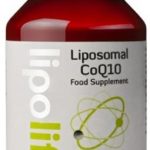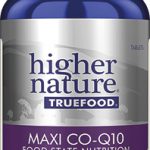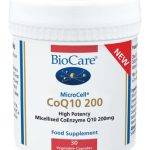The human body needs many microscopic – and even smaller – entities within it to function correctly and help keep us healthy throughout our lives. But one such molecule that doesn’t get talked about much that’s absolutely crucial to both animals (including humans) and plants, thus of universal importance to pretty much all living things, is the coenzyme.
Sometimes referred to as cosubstrates, coenzymes – it should be noted – are not actually enzymes. As organic nonprotein cofactors, they’re critical in ensuring that enzymatic and metabolic processes in the body take place as they should. They do this by loosely attaching themselves to enzymes that are inactive – often called apoenzymes – to convert them into active forms and so become capable of catalysing chemical reactions (if you like, a bit like using a key on a lock), including the breaking down of food, thus resulting in the release of energy usable by the body’s cells. Moreover, coenzymes enjoy an important, rather cosy relationship with vitamins; the latter make sure that the former can be synthesised, therefore underlining the necessity to up the levels of vitamins in your body should they be low.
How do coenzymes work?
So, if you didn’t already, you now know what coenzymes do – but how do they do it? Well, they’re far from a one-trick pony; each coenzyme that attaches itself to an apoenzyme then detaches itself from the resultant enzyme once this biochemical reaction’s taken place, ensuring they can repeat this highly important process as cofactors with other apoenzyme/ enzymes over again.
Indeed, another reason the relationship between coenzymes and enzymes is so fundamentally important is because the former aid the transfer of compounds between different enzymes. This is crucial because each time there’s a necessary chemical reaction involving an enzyme, the molecule itself fundamentally changes, so the coenzyme helps ensure all enzymes can interact with each other. In so doing, coenzymes guarantee that competitive inhibition takes place, which is all about restricting enzymes’ activity so they’re not over-busy; doing things in the body when they don’t need to and thus causing problems1 – basically, competitive inhibition sees a coenzyme helping to attract and repel different compounds to and from a specific enzyme.
The qualities of CoQ10
Quite simply then, without an adequate number of coenzymes present and functioning in your body, it’ll detrimentally affect your health. By playing such a large role in the transfer of chemical compounds (or more specifically ‘functional groups’; the active sections of these compounds), they make sure that critical components like electrons, hydrogens and food (energy) are delivered to the body’s enzymes as they’re needed, thus often enhancing the stability/ reactivity of an enzyme’s product2, 3. Indeed, there’s also a critical symbiotic relationship between coenzymes and vitamins. Not only are the two kinds of molecule similar, but a good number of the vitamins we consume – or should consume, at least –are literally converted into all-important coenzymes. Just another reason then, like so many others pointed out so regularly on this blog, why it’s hugely important to put a vitamin deficiency right, should you suffer from one.
And, to focus on one coenzyme in particular (and its specific importance to the body’s health), one of the most frequently consumed in the body – Coenzyme Q10, or simply CoQ10 – isn’t just so useful because it aids the work and efficacy of enzymes in producing energy for cell growth and maintenance, but also because it functions extremely well as an antioxidant, thus preventing the harmful oxidation efforts on other much-needed molecules by free radicals. In this way, CoQ10’s been said to play a contributory role in preventing and/ or helping to treat the likes of heart failure, muscular dystrophy, periodontal disease and even cancer. As such, it’s proving ever more popular as a treatment to reduce the negative effects some synthetically produced medicines can have on muscles, the heart and other organs, as well as to boost energy and recovery following exercise.
Have you thought about Coenzyme Q10 supplements?
So, although they operate at that tiny molecular level, the much-needed activity of CoQ10 and other coenzymes resonates throughout the entire human body. There can be no doubt that maintaining their levels – and those of their precursor vitamins – in your body is critically important; otherwise such deficiencies can result in nasty and preventable conditions and, irrespective of how these begin, you won’t be able to fight them effectively if your body’s not awash with an adequate number of vitamins and coenzymes.
CoQ10 itself can be naturally sourced in a wide array of different foods; if you’re a vegetarian, you can get your fill of it from foodstuffs other than meat very effectively; the likes of mackerel and sardines (should you eat fish) or, failing that, peanuts, differing tree nuts, beans and soy oil. It’s important, though, that you focus on consuming the most active form of coenzymes – CoQ10 included – as possible, so to be sure of doing so you may be inclined to go the natural supplementation route. A good guide to the sort of products available can be found on The Finchley Clinic’s CoQ10 page, where you’ll find the following highly recommended supplements:
 Liposomal Q10 – a supplement manufactured with Liposomal Encapsulation Technology (LET), which ensures its CoQ10 boasts much higher bioavailability than many equivalent products, thus delivering higher content of the coenzyme to the body’s cells (as much as 7-10 times more than regular supplements, in fact).
Liposomal Q10 – a supplement manufactured with Liposomal Encapsulation Technology (LET), which ensures its CoQ10 boasts much higher bioavailability than many equivalent products, thus delivering higher content of the coenzyme to the body’s cells (as much as 7-10 times more than regular supplements, in fact).
 True Food Maxi Q10 – contains CoQ10-enriched Saccharomyces cerevisiae (food yeast), ensuring it can be easily digested and absorbed for high bioavailability; this supplement’s CoQ10 content is also noted to remain in the body longer than that of many comparative products.
True Food Maxi Q10 – contains CoQ10-enriched Saccharomyces cerevisiae (food yeast), ensuring it can be easily digested and absorbed for high bioavailability; this supplement’s CoQ10 content is also noted to remain in the body longer than that of many comparative products.
 Microcell CoQ10 – the CoQ10 and additional oils in this supplement are micellised into droplets, thus dispersed into water to increase absorption in the body, while also encased in a vegetable capsule to help reduce light-sensitive oxidation.
Microcell CoQ10 – the CoQ10 and additional oils in this supplement are micellised into droplets, thus dispersed into water to increase absorption in the body, while also encased in a vegetable capsule to help reduce light-sensitive oxidation.
References:
- University of Hawaii. ‘Biochemistry’. http://www2.hawaii.edu/~johnb/micro/m130/m130lect7.html. n.p.
- Department of Chemistry and Biochemistry. ‘What is a Functional Group?’. UCLA. http://www.chem.ucla.edu/~harding/notes/FG_01.pdf. n.p.
- Linus Pauling Institute. ‘Vitamin C and Skin Health’. Oregon State University. http://lpi.oregonstate.edu/mic/health-disease/skin-health/vitamin-C. n.p.
